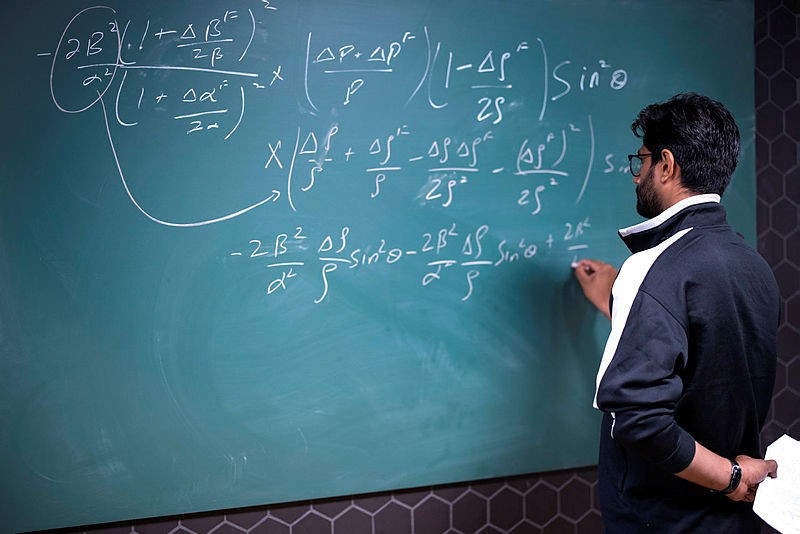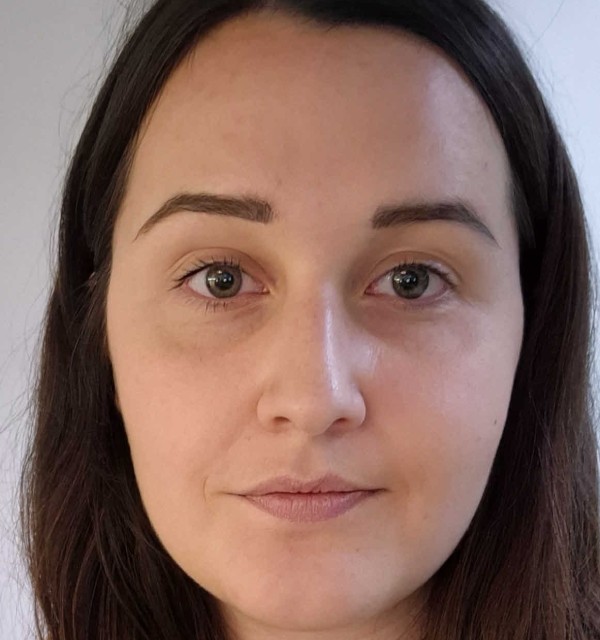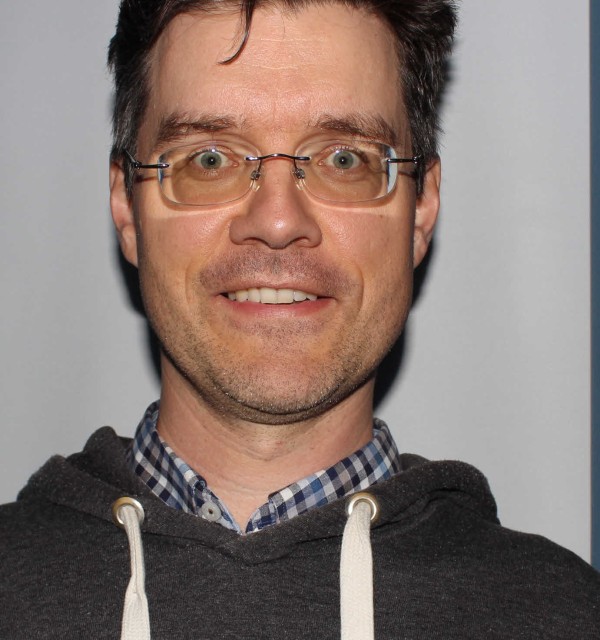Do you have a bachelor's degree in mathematics and physics? Then this is the master's degree for you! Mathematics and physics are the foundation for all technological development, and are used in economics, in social studies and in health.
2 years (4 semesters)
English
August every year

This programme provides you with skills in mathematics, physics and statistics on an advanced level. You will be able to solve complex problems in mathematics and physics. In addition, you will have solid skills in numerical modelling, data analysis and experimental methods to solve problems in the natural sciences, economics, health, social sciences and management.
Students with a completed degree in mathematics and physics find jobs as specialists in industry, in roles within technical design and innovation, data analysis, mathematical modeling and management. In both the public and private sectors, mathematicians and physicists are in demand for research and development work, particularly for tasks that require advanced mathematics, deduction and problem-solving skills, high precision and deep understanding.
Specialisation
From the first semester, you choose to specialise in either mathematics or physics. The direction you choose depends on your background and which bachelor's degree you have.
Academic requirements
A bachelor´s degree within one of the following disciplines is required:
- Mathematics
- Physics
Applicants with another bachelor’s degree may also be considered if they document at least 120 ECTS credits in mathematics and physics.
Admission to this master's programme requires a minimum grade average comparable to a Norwegian C (according to ECTS Standards) in your bachelor's degree. Applicants with a result Second-class lower Division or lower are not qualified for admission.
Application and admission
Contact
For inquiries regarding admission to international Master's programmes, send an email to: admissions@uis.no
Student life at UiS
Frequently asked questions
What topics are covered? Is there a good student environment at the department?
What areas can I immerse myself in at master's level?
At UiS, at master's level you can immerse yourself in various areas within mathematics and physics. We have strong academic environments in algebraic geometry, mathematical analysis, mathematical statistics, materials physics, cosmology and particle physics and mathematical physics. Read more about our professional environments.
Can I take a bachelor's degree in mathematics and physics?
If you have been admitted to a 5-year master's degree in mathematics and physics, you can choose (in the 5th semester) to complete your studies with a bachelor's degree in mathematics and physics by writing a bachelor's thesis in the 6th semester. This bachelor's degree qualifies, among other things, master's in applied data science and master's in computational engineering at UiS, as well as MSc studies in physics or mathematics at other universities. Bachelors in mathematics and physics from UiS have previously also taken a master's degree in risk management and a master's degree in petroleum technology.
Is there a good student environment at the department?
Sure! As a mathematics and physics student, we recommend that you join Theta: the line association for mathematics and physics students at UiS. The association arranges internal lectures and extracurricular gatherings with a focus on the social, and allows you to take part in a professional environment from which the university itself recruits doctoral fellows. The membership is a diverse assembly with a good gender balance, but has the main emphasis on realists in their twenties.
What do mathematicians and physicists work on after they have finished their studies?
Research, development and teaching in academia, for example theoretical physics, analysis and development of materials, cosmology, algebraic geometry, mathematical analysis, medical statistics and econometrics.
Research and development in industry, such as the oil industry, renewable energy, space technology, machine learning and artificial intelligence.
Others work in business and the municipality / state that requires analytical skills and numbers / mathematical understanding and the use of computers. We are collecting more and more data, and understanding numbers is important in order to be able to utilize these in a good way. (Analyst positions, finance and insurance industry, sports, health and medicine and more)
Teaching at upper secondary level.
Do the business community and the public sector in the region employ mathematicians and physicists?
Of course! Many local companies and public institutions employ mathematicians and physicists, including: Equinor, Lyse, SR Bank, Schlumberger, Laerdal Medical, NORCE, ConocoPhilips, Safetec, Veritas, SUS, Upper Secondary Schools, UiS and more.
Contact
Faculty Administration TN
Kontor for utdanningsadministrative tjenester
Department of Mathematics and Physics



